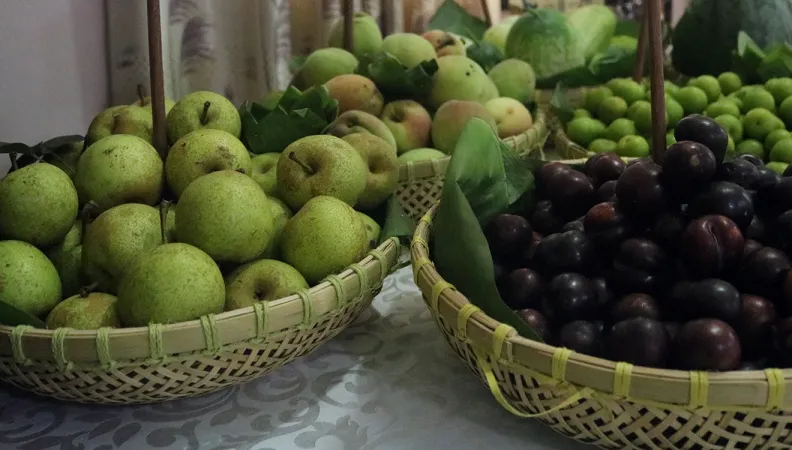Share the page
France and Vietnam: Boosting Farmers’ Resilience in the face of Climate Change
Published on

In Lao Cai, Vietnam, AFD and the New Aquitaine Region are supporting a project implemented by the NGO Agrisud that aims to develop sustainable agricultural practices to strengthen food security and improve the quality of life of the province's inhabitants.
In 2016, frost and exceptional cold damaged most of the cardamom plants in Lao Cai – the main source of income for farmers – and causing the death of around 100 livestock. Households, especially the poorest, then faced difficulties meeting their basic needs, with sudden food shortages.
Shortly thereafter, in order to strengthen the resilience of farms in extreme climatic conditions, the NGO Agrisud developed the IDEAS project, based on research conducted by the province of Lao Cai and the French region of Nouvelle Aquitaine, a partnership that began in 2002.
Diversifying cultures
In its first phase, the project sought to develop seven household-level production models: pig and porcupine breeding, poultry farming, Jiaogulan (a very resistant climbing plant), market gardening, honey production and fruit trees. This diversification has ensured that farmers are less vulnerable to climatic hazards, and thus capable of earning a sustainable and stable income.
At the same time, farmers have received training in agro-ecological techniques and have learned to choose animal species and seeds adapted to local conditions, while learning about environmentally friendly practices, in particular by limiting the use of chemical inputs.
Several producers' associations have been created, aiming to strengthen the visibility and market presence of their products. For example, the Hoang Lien cooperative was created in October 2019 with the participation of farming families from 4 ethnic groups (Hmong - Giay - Dao - Tay), and it markets its products in accordance with the principles of fair trade, promotion of smallholders and sale of quality and environmentally friendly products.
A promising new phase
Following the success of the first phase, the project has been extended for a further three years (2021-2023), with a geographical area extended to 12 villages. In addition to improving the seven previously identified models, it aims to develop four new ones, thus strengthening the diversification of agricultural production and the supply of local products in the province.
The skills of the Hoang Lien cooperative, the project team and its partners will also be strengthened to enable them to provide appropriate technical advice and to scale up these agro-ecological practices at lower cost. "We still face many challenges, especially in the context of the pandemic, which is hitting Vietnam hard,” said Le Huy Cong, IDEAS Project Coordinator. “Nevertheless, the project team will be determined to strengthen the resilience of local agricultural production to external shocks. For this, it is necessary to develop a deep link between farmers and institutional, social, economic and technical actors at the provincial level.”
Women as stakeholders in the project
This second phase pays particular attention to the integration of women in all project activities. To this end, training, literacy programs and awareness-raising workshops will be set up, as well as the creation of income-generating para-agricultural activities aimed at women from ethnic minorities, particularly the Hmong.
